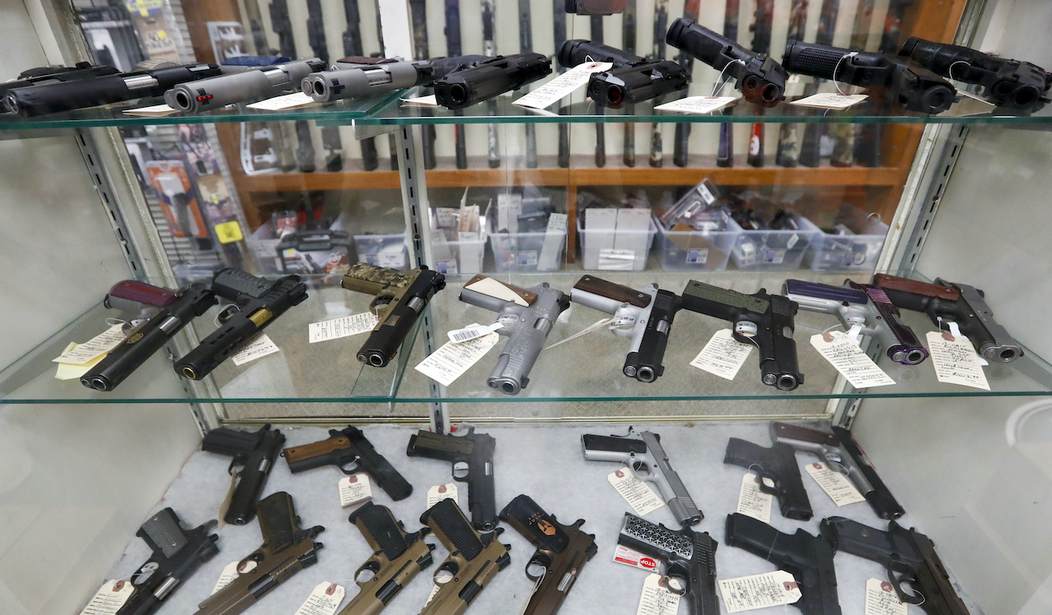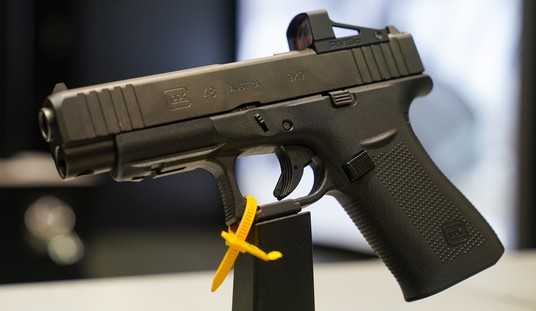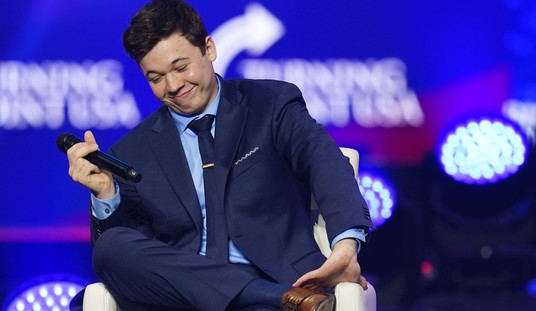Though the Eighth Circuit Court of Appeals ruled this week that Minnesota's ban on lawful concealed carry for young adults violates the Second Amendment, the state of Colorado isn't backing away from its ban on gun sales to adults under the age of 21.
In a filing before the Tenth Circuit Court of Appeals panel that's considering the constitutionality of the Colorado law, the state argues that the Supreme Court has essentially given the green light to prohibiting under-21s from lawfully purchasing a firearm.
Stating that "some courts have misunderstood the methodology of [the Court’s]recent Second Amendment cases,” Rahimi clarifies that “the appropriate analysis involves considering whether the challenged regulation is consistent with the principles that underpin our regulatory tradition,” not whether it has a precise founding-era match. Following Rahimi, this Court likewise should have no trouble concluding that Colorado’s age-limit on the purchase of guns survives the Plaintiff’s facial challenge here.
And what principles would those be? After all, the Eighth Circuit just concluded that adults under the age of 21 are a part of the nation's political community, and as such should have access to their fundamental civil rights just like those 21 and older. According to the state, the law being challenged "is consistent with principles in our regulatory traditions: access to weapons by children and adolescents may be regulated to limit misuse."
Age-limits have been used repeatedly throughout our Nation’s history, including widespread state laws in the 19th century prohibiting sales of guns to those under twenty one. This Court should reverse the district court’s preliminary injunction.
Are 20-year-olds really adolescents? I wouldn't consider them as such, but more importantly, the law treats 18, 19, and 20-year-olds as adults. They can vote, they can serve in the military, they can get married, and yes, under federal law they can purchase and possess at least some firearms.
Admittedly, the federal statutes are kind of screwy; allowing an 18-year-old to purchase a rifle but not a pistol. But that statute too is facing legal challenges around the country, and some of the lawsuits have already met with some success. A federal judge in Virginia, for instance, concluded last year that the federal ban on handgun sales for under-21s is unconstitutional, though the law remains in effect in the Commonwealth while the case is being appealed.
It is true, as Colorado's attorneys argue, that there were several state-level laws in the 19th century precluding those under the age of 21 from purchasing a firearm. There were also laws in the 19th century prohibiting gun sales or possession of firearms by freedmen, Native Americans, and other groups of individuals who were seen as outside the political community. But as the Eighth Circuit pointed out on Tuesday, there's no debate that adults under the age of 21 are now considered part of that same political community, which means they're entitled to exercise all of their constitutionally-protected rights.
Ordinary, law-abiding, adult citizens that are 18 to 20-year-olds are members of the people because: (1) they are members of the political community under Heller’s “political community” definition; (2) the people has a fixed definition, though not fixed contents; (3) they are adults; and (4) the Second Amendment doesnot have a freestanding, extratextual dangerousness catchall.
Minnesota asserts that because 18 to 20-year-olds did not possess all their “civil and political rights” as minors at the founding, they cannot today be considered members of the people. Minnesota emphasizes that the “political community at the time of the founding” was restricted not only to those over the age of 21, but also to “eligible voters, namely white, male, yeomen farmers.” It concludes that because those 18 to 20-year-olds were not legally autonomous members of the political community at the founding, they are not part of the people in the plain text of the Second Amendment.
Arguments of this type, focusing on the original contents of a right instead ofthe original definition—i.e., that only those people considered to be in the politicalcommunity in 1791 “are protected by the Second Amendment,” instead of those meeting the original definition of being within the political community—are “bordering on the frivolous.” Heller rejected the idea that the Second Amendment protected only the original contents of the defined term “arms” and, instead, applied that original definition “to all instruments that constitute bearable arms, even those that were not in existence at the time of the founding.”
Similarly, Heller defines “the people” as “all members of the politicalcommunity, not an unspecified subset.” Contrary to Minnesota’s assertion, the political community is not confined to thosewith political rights (eligible voters) at the founding.
Even if Minnesota were correct in its assertions about the political community’s definition, the contents of that defined term have changed. Since the founding, the guarantee of political rights has constitutionally expanded, especially in the right to vote. Reading the Second Amendment in the context of the Twenty-Sixth Amendment unambiguously places 18 to 20-year-olds within the national political community. Reading the Constitutionas a whole, the Third Circuit recently (correctly) explained that “consistency has a claim on us.” Those 18 to 20-years-old are “among ‘the people’ for other constitutional rights such as the right to vote, freedom of speech, peaceable assembly, government petitions, and the right against unreasonable government searches and seizures.” An inconsistent reading subjugates “the constitutional right to bear arms in public for self-defense [to] . . . ‘a second-class right, subject to an entirely different body of rules than the other Bill of Rights guarantees.’”
As we've become a more perfect union, we've expanded the definition of the "political community". Most of us see that as a good thing, but Colorado's defense of its ban on gun sales to under-21s instead treats our nation's history as a problem that has led to "adolescents" having unfettered access to their Second Amendment rights.
The U.S. District Court judge overseeing Rocky Mountain Gun Owners v. Polis ruled in favor of the Second Amendment group in granting an injunction against Colorado's new gun control law, and the Tenth Circuit should affirm that decision. The Supreme Court may have said in Rahimi that historical analogues don't have to be an exact twin of modern statutes, but, as Colorado acknowledged, 21st-century restrictions still must "be consistent with the principles that underpin our regulatory tradition."
There is no tradition whatsoever of excluding a particular class of the political community from exercising their Second Amendment rights. Colorado's law fails the Bruen test, and just like Minnesota's ban on concealed carry for under-21s, it must be struck down for violating the civil rights of young adults in the Centennial State.









Join the conversation as a VIP Member